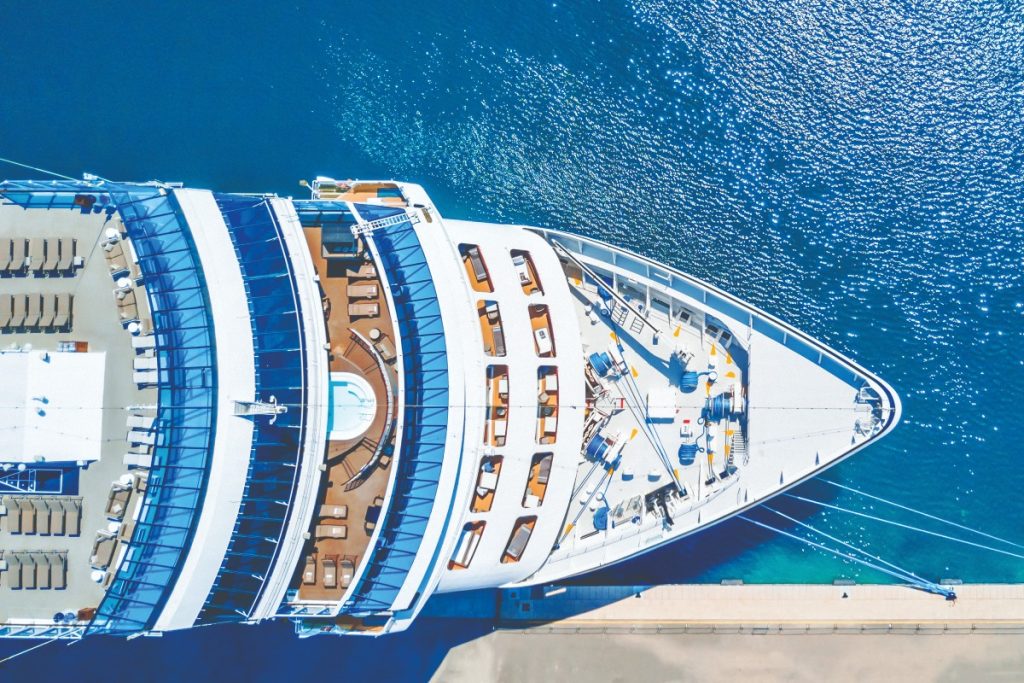The UK cruise industry is experiencing a resurgence, drawing in a new wave of holidaymakers through innovation and diversity.
This revitalisation is evidenced by recent CLIA research highlighting significant growth and expanding demographic appeal across the sector.
The Growth of the UK Cruise Market
The UK cruise sector is experiencing significant growth, as evidenced by the latest research conducted by the Cruise Lines International Association (CLIA). According to their findings, approximately 1.7 million people from the UK and Ireland embarked on cruises in 2022, approaching the demand levels previously seen in 2019. The Mediterranean remains the most popular destination, attracting 38.4% of travellers. This surge highlights the sector’s resilience and the growing preference for cruises among British holidaymakers.
Cruising’s Broadening Appeal
The intent to cruise is undeniably strong, with CLIA reporting an 85% intent among passengers to embark on another sea holiday. This is a noticeable increase of 6% from 2019. Furthermore, 60% of these passengers plan to cruise in the next two years. The interest extends beyond seasoned cruisers, as 70% of those who have never embarked on a cruise are open to the idea in the coming years. Such statistics underscore the widening appeal of cruise holidays.
CLIA’s data also indicates a diversification in the demographic profile of cruise passengers. The average age of passengers stands at 55.8 years, reflecting an appeal across different age groups. The cruise sector’s ability to cater to a broad range of ages is a testament to its adaptability and commitment to providing diverse experiences for all its guests.
Sustainability and Environmental Awareness
Environmental considerations have gained prominence among cruise passengers, with 76% of British passengers who sailed recently expressing increased awareness about sustainable tourism. The cruise industry is actively responding to this trend by enhancing its sustainability initiatives and promoting responsible tourism practices. These efforts are critical in not only meeting passenger expectations but also in ensuring the long-term viability of the sector.
Cruise lines are investing heavily in new technologies and practices aimed at reducing environmental impact. From cleaner fuel alternatives to waste reduction strategies, the industry is taking proactive steps to lessen its ecological footprint. Such measures are becoming integral to the cruise experience, aligning with global sustainability goals and passenger demands for more environmentally conscious travel.
The Role of Innovation in the Cruise Sector
Innovation is at the heart of the cruise sector’s recent successes. Cruise lines are continually challenging themselves to reinvent the cruising experience, offering new and exciting opportunities for travellers. According to Ben Bouldin, Chair of CLIA UK & Ireland, “Cruise lines are always challenging themselves to innovate and diversify, and constantly reinventing the cruise experience.” This commitment to innovation is crucial to attracting new passengers and retaining loyal ones.
Thomas Mahoney, Cunard’s sales director, echoes this sentiment, highlighting the successful initiatives that have propelled Cunard’s growth. The introduction of new programmes, such as the ‘new to selling Cunard’ module, offers agents the tools they need to effectively market and sell cruise experiences. Such innovation not only benefits passengers but also supports the broader industry ecosystem.
Economic Contributions of the Cruise Industry
The UK cruise industry is poised to remain a significant contributor to the national economy. The sector provides numerous jobs and supports other industries through its expansive supply chain. According to CLIA, this ‘flagship’ industry continues to drive economic benefits by generating employment and fostering regional development. These contributions are vital, particularly in the current economic climate, reinforcing the industry’s role as a key economic driver.
As Andy Harmer, MD of CLIA UK & Ireland, notes, “Cruise holidays have once again captured the imagination of the British public.” A wide range of activities, from cultural immersion to relaxation and entertainment, ensures that cruises offer something for every traveller. The ongoing appeal of cruising as a holiday option bodes well for the continued economic impact of this vibrant sector.
Looking Ahead: The Future of Cruising in the UK
The future of the UK cruise industry looks promising. With strong booking momentum already noted for 2023 and 2024, and innovative programmes being launched, the sector is well-positioned for growth. The upcoming debut of Queen Anne’s maiden season is generating considerable interest among prospective cruisers. Such developments are representative of the cruise industry’s dynamism and its ability to adapt in line with consumer preferences.
Looking ahead, the industry is likely to continue its trajectory of growth and adaptation. As more consumers show interest in cruise holidays, the potential for expansion and innovation remains vast. This ongoing evolution will be crucial in meeting the diverse needs and expectations of future passengers, ensuring the sector’s relevance and appeal in the years to come.
Conclusion
The UK cruise sector’s commitment to innovation, sustainability, and broadening its appeal has positioned it strongly in the travel industry. As research indicates, more individuals are considering cruises as a holiday option, drawn by diverse offerings and enhanced experiences. The future is bright for the UK cruise industry, as it continues to navigate its path to growth and success.
The UK cruise industry’s upward trajectory is anchored in its innovative practices and broadening market reach.
As more travellers embrace cruise holidays, the sector is well-placed for continued growth, enhancing its economic and cultural impact.

